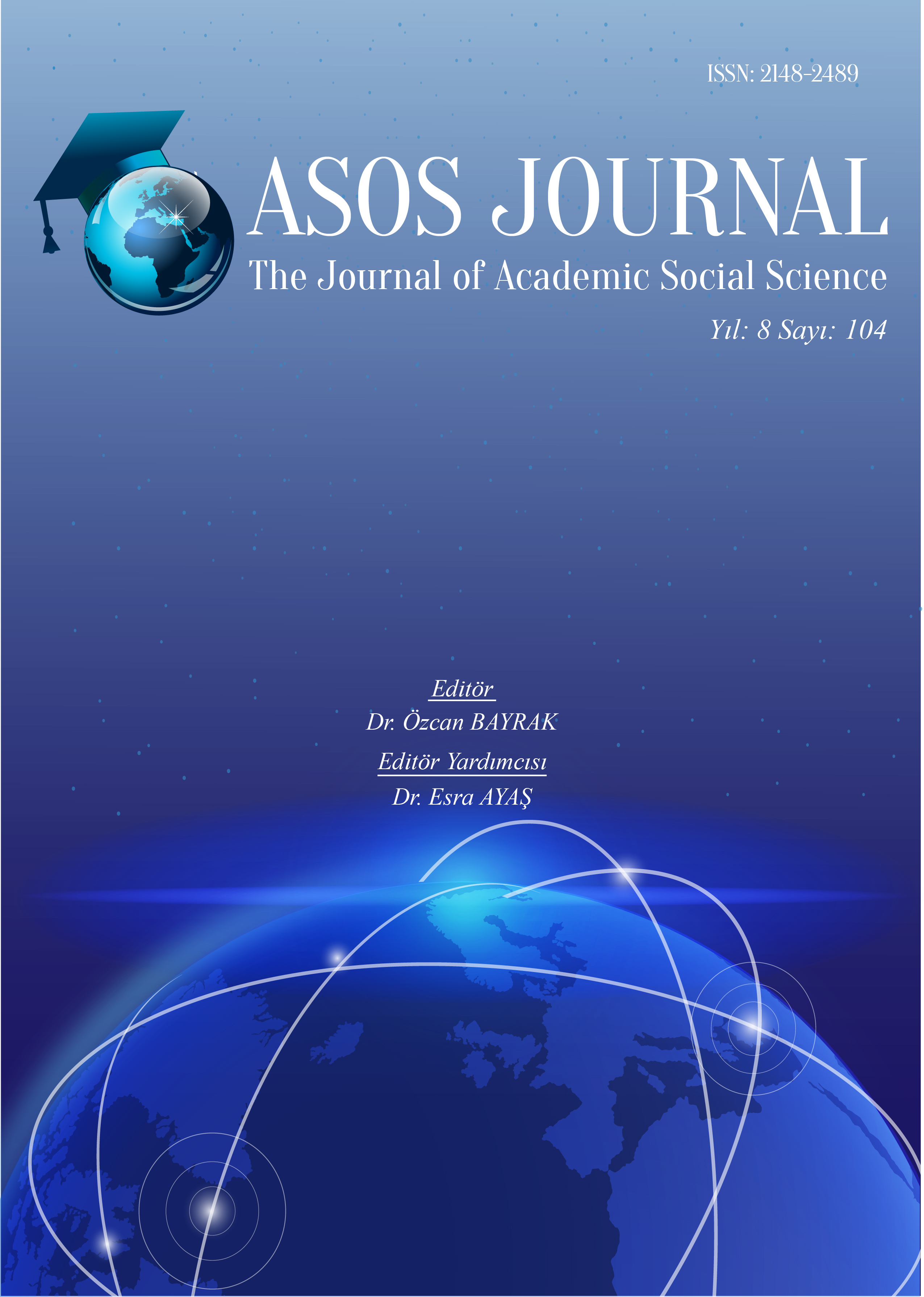Author :
Abstract
Bu çalışmada akrilik, ate, jakuzi ve jul sözcüklerinin köken tespiti ele alınmaktadır. Bunun için söz konusu sözcüklerin çeşitli Türkçe sözlüklerdeki köken verilerine bakılmıştır. İlgili Türkçe sözlüklerde geçen kökenleri ve anlamları yazılan bu sözcüklerin verilerde farklılık olması durumunda gerekli yabancı sözlüklerdeki anlamları da belirtilmiştir. Ayrıca kaynak dildeki ve lüzumlu görülen diğer dillerdeki telaffuzları da yazılarak Türkçedeki biçimle kıyaslanmıştır. Sözlüklerde yer alıp yer almamaları dikkate alınarak tarihî verilere ulaşılmıştır. Bu bilgiler sayesinde akrilik, ate, jakuzi ve jul sözcüklerinin Türkçeye hangi dilden geçtiklerinin doğru bir şekilde bulunması hedeflenmiştir. Çalışmada geçen akrilik, ate, jakuzi ve jul sözcüklerinin kökenleri konusunda bazı Türkçe sözlüklerin aynı görüşte oldukları, bazılarının ise farklı düşündükleri gözlenmiştir. Dolayısıyla bizim görüşümüzün de kimi sözlüklerle uyuştuğu, diğer birtakım sözlüklerle uyuşmadığı sonucu ortaya çıkmıştır. Bunun nedenleri tarihî, ses bilimsel ve anlam bilimsel veriler doğrultusunda ifade edilmiştir.
Keywords
Abstract
In this study, the origin detection of the words akrilik, ate, jakuzi, jul is examined. For this, the data on the origin of the given words in various Turkish dictionaries are explored. The origins and written meanings of these words, in the case there are differences in the data in related Turkish dictionaries, are also provided from the necessary foreign dictionaries. In addition, the pronunciations in the source language and other languages deemed necessary are written and compared to the format in Turkish. By considering whether they exist in dictionaries or not, historical data have been obtained. Thanks to this information, it is aimed to find out accurately from which language the words akrilik, ate, jakuzi, jul are transmitted to Turkish. It has been observed that some Turkish dictionaries agree about the origins of the words akrilik, ate, jakuzi, jul in the study, while others think differently. Therefore, it is concluded that our opinion also matches some dictionaries, and does not match another number of dictionaries. The reasons for this are expressed in accordance with historical, phonetic and semantic data.
Keywords
- Ayverdi, İlhan, (2011), Misalli Büyük Türkçe Sözlük, Kubbealtı Yayınları, İstanbul.
- Hornby, Albert Sidney, (2015), Oxford Advanced Learner’s Dictionary, Oxford University Press, Oxford.
- Karaağaç, Günay, (2015), Türkçenin Alıntılar Sözlüğü, Akçağ Yayınları, Ankara.
- Meninski, Franciscus à Mesgnien, (2000), Thesaurus Linguarum Orientalium Turcicae- Arabicae-Persicae: Lexicon Turcico-Arabico-Persicum (haz. Mehmet Ölmez), Simurg Yayınları, İstanbul.
- Ragazzini, Giuseppe; Biagi, Adele, (2006), Dizionario Inglese Italiano Italian English Dictio- nary, Zanichelli, Bologna.
- Redhouse, Sir James William, (1987), A Turkish and English Lexicon: shewing in English the significations of the Turkish terms, Librairie du Liban, Beirut.
- Robert, Paul, (2001), Le Grand Robert de la langue française, Dictionnaires Le Robert, Paris.
- Saraç, Tahsin, (2003), Büyük Fransızca-Türkçe Sözlük: Grand Dictionnaire Français-Turc, Adam Yayınları, İstanbul.
- Somer, Güler; Yaşar, Ahmet, (2009), Kimya Terimleri Sözlüğü, Türk Dil Kurumu Yayınları, Ankara.
- Şemseddin Sâmi, (2002), Kâmûs-ı Türkî, Çağrı Yayınları, İstanbul.
- Tietze, Andreas, (2002), Tarihi ve Etimolojik Türkiye Türkçesi Lugatı: Sprachgeschichtliches und etymologisches Wörterbuch des Türkei-Türkischen, C. 1 (A-E), Simurg Yayınları, İstanbul.
- Tietze, Andreas, (2009), Tarihi ve Etimolojik Türkiye Türkçesi Lugatı: Sprachgeschichtliches und etymologisches Wörterbuch des Türkei-Türkischen, C. 2 (F-J), Verlag der Österreichischen Akademie der Wissenschaften, Wien.
- Türkçe Sözlük, (2011), Türk Dil Kurumu Yayınları, Ankara.
- Türkçede Batı Kökenli Kelimeler Sözlüğü, (2015), Türk Dil Kurumu Yayınları, Ankara.
- Webster, Noah, (1996), Webster’s Encyclopedic Unabridged Dictionary of the English Langua- ge, Random House Value Publishing, New York.





